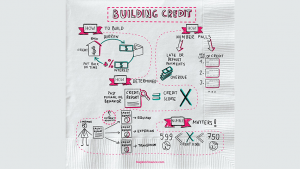
What is a Money Market account?
A money market account is an interest bearing account that typically earns higher interest than a traditional savings account. The advantage of a money market savings account is the ability to earn a higher interest rate, insurance protection and the ability to write checks and use a debit card. Banks generally require a minimum balance to be met when you open a money market account and will impose fees if the amount in the account falls below the minimum.
What are the benefits of a Money Market account?
Besides debit card and check writing privileges, money market accounts offer a number of benefits.
- They allow for guaranteed earnings and FDIC insurance protection of up to $250,000 per depositor per account.
- Your money is also easily accessible and can be immediately withdrawn if you need it.
- Money market accounts also lack the risk of traditional investments.
When should I get a Money Market account?
There are many situations when a money market account is a great savings option. If you have a short-term savings goal such as a home renovation, wedding, tax payments or funds for a new car, money market accounts are very useful. They can also be used to create an emergency fund since you have unlimited access to the money and it will accrue higher interest when not being used. It is useful to note that Money Market mutual funds are different from Money Market accounts and do not have the benefits of FDIC insurance.
Money Market vs. CD
Whether you choose a Money Market or CD (Certificate of Deposit) depends on your goals. While both accounts are FDIC insured, higher interest, low risk investments, there are some key differences. The main difference between a Money Market account and a CD is that you do not have regular access to your funds after opening a CD. If you choose a longer deposit period, you will get a better interest rate, however, you will be penalized if you pull the funds out early. If you have a longer-term financial goal, such as five or ten years, it may be better to secure a higher interest yield.
The key is to talk with a financial planner before making any decisions about your investment strategy. I am here to help, even if you are not an RCB Bank customer. Whether you are a customer or not, RCB Bank is here to help. Our wealth advisors can help with all of your questions about retirement investments. Give us a call at 855-226-5722.
Opinions expressed above are the personal opinions of Arnold Beevers and meant for generic illustration purposes only. For specific questions regarding your personal lending needs, please call RCB Bank at 855-BANK-RCB.RCB Bank is an Equal Housing Lender and member FDIC.




